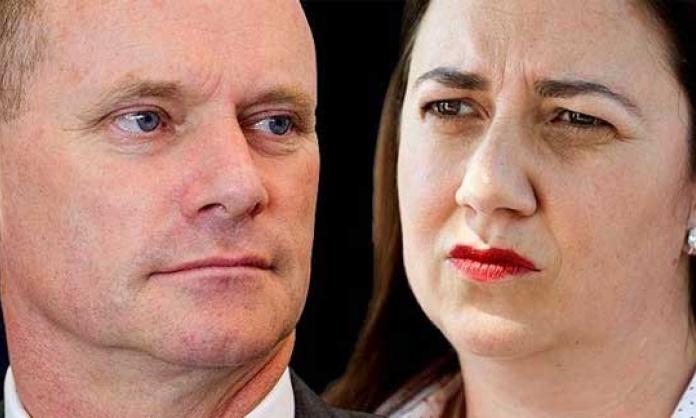Deeply unpopular Queensland premier Campbell Newman has called a state election on 31 January. Just three years after the Liberal National Party swept to power in a historic landslide, not only is the government facing a big negative swing, but there is a strong likelihood that Newman himself will be unseated.
In its first term, the LNP introduced an austerity budget that cut thousands of public sector jobs and funding to a range of community organisations providing services to some of Queensland’s most vulnerable.
It introduced the so-called VLAD (Vicious Lawless Associate Disestablishment) laws, which are a major attack on civil liberties under the guise of dealing with outlaw motorcycle gangs.
The LNP has also accelerated the pace of the sale of public assets that the previous Labor government was punished for. Although it declared that it has listened to Queenslanders’ opposition to asset sales by moving instead to leasing arrangements, few are fooled by this cynical move and see it for what it is: asset sales by another name.
Most commentators agree that the LNP is likely to be punished at the ballot box. Labor has picked up two seats in recent by-elections. However, given the rump that Labor was reduced to at the last election – it won only seven of 89 seats – it would take a major uniform swing against the LNP to give Labor the 36 extra seats it needs to form government.
It is unclear how the independents and minor parties might impact the election and the ability of either major party to form government in its own right. Although winning two seats at the 2012 poll and picking up another courtesy of an LNP defection, the Katter Party is polling poorly. To some extent, it has been overshadowed by the rise of the Palmer United Party, although the latter appears to be in a shambles, with internal bickering and even a criminal investigation into Palmer’s media adviser.
Two LNP MPs who defected to the PUP have since left and are sitting as independents. Arch-racist Pauline Hanson has promised to revive her One Nation Party to stand in the election, but it’s too soon to tell whether she will be a serious player. The Greens are polling at around 10 per cent, up from 7.5 per cent at the last election, but are unlikely to gain a seat.
Perhaps unsurprisingly, given its record in government and the minor status it has endured in opposition, the ALP is hardly inspiring the electorate. Despite Newman’s personal unpopularity, ALP leader Annastacia Palaszczuk still trails him as better premier in current polling. Labor is focussing on “reminding” voters of the savage cuts that have taken place under Newman’s government.
It’s not reminding that Queenslanders need, however, but a complete reversal of the cuts and a massive injection of funding to undo the damage. And while Labor is declaring its opposition to further assets sales, there has been no move to reverse the unpopular sell-offs that took place under its previous administration.
Palaszczuk started the campaign by telling voters to “wait and see” what Labor’s policies will be. However, we don’t need to “wait and see” to know that Labor’s existing policy commits it to “an economically responsible and prudent approach to managing the Queensland Budget”, the same capitalist economic logic that underpinned Newman’s austerity measures.
So, while the demise of the LNP government should be welcomed, indeed celebrated, a change of government is no guarantee of major improvements to the lives of Queensland workers unless we’re prepared to fight whichever party we’re living under.








